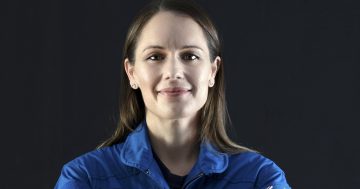Dianne Bungay-Dean* discusses why almost all home assistance devices have female voice and how it contributes to gender stereotypes.
 I was out one morning when I received a notification on my phone that my Roomba, an autonomous robotic vacuum, was stuck in one place while vacuuming and needed to be moved.
I was out one morning when I received a notification on my phone that my Roomba, an autonomous robotic vacuum, was stuck in one place while vacuuming and needed to be moved.
I like my home devices linked to my phone so I can control them remotely – except when it’s stuck like this.
I texted my husband, who was working from home, to look for it and free it. He responded that he had already taken care of it:
Yes, I heard her when she made a sound.
Her? She? A robotic vacuum cleaner is a she? The feminist in me immediately texted him back:
How is a vacuum a she? Is it because it’s a cleaning robot?
Confused, he responded: Does the robot not have a female voice?
Oh. Right. “Calm down now, Rosie the Riveter,” I told myself, quite embarrassed.
I’m glad our little misunderstanding was nothing terrible. I wonder, though, if other people have made a similar association on gender based on the role of a device? How about vice versa?
When I got home, I thanked my husband and went into research mode right away.
Why do all of our home devices have a female voice? Google Home, Google Nest, Apple’s Siri, iRobot’s Roomba, etc.
Sure it’s the default setting and anyone can change it; then again, who does?
Turns out, this is not the first time anyone ever asked why devices have a female voice. As a matter of fact, it’s on purpose.
Studies show the female voice is considered more trustworthy than male voices.
In the animal kingdom, the mothers care for the young, therefore hearing a mother’s voice feels more nurturing and caring.
On the street, both men and women tend to feel somewhat more secure when approached by a woman compared to a man.
While I don’t disagree on the positive effect of hearing my mother’s voice, I want to ask, is this reason worth the consequence (perhaps unintended) of contributing to gender stereotypes?
Is it possible that we’re all just used to this norm and that we’re “stuck” in this vicious cycle?
A 2019 UNESCO publication entitled “I’d blush if I could,” talks about how gendered virtual assistants perpetuate stereotypes against women:
Siri’s ‘female’ obsequiousness – and the servility expressed by so many other digital assistants projected as young women – provides a powerful illustration of gender biases coded into technology products, pervasive in the technology sector and apparent in digital skills education.
Moreover, in the recent past, when spoken to with verbal sexual abuse, different digital assistants had responded with kind and tolerating responses.
When told “You’re a b*tch,” Siri responded with “I’d blush if I could.”
When told “You’re a sl*t”, Alexa responded with, “Well, thanks for the feedback.”
These voice assistant responses have since been updated.
Siri now says, “I won’t respond to that” and Alexa will simply not respond.
But this is proof that even during recent times, instead of using technology to change the world for the better, it can still be used to reinforce stereotypes and abusive behaviour.
Studies on the effects of female versus male voices continue.
In the aviation industry, scientists at the Defence Research and Development Canada, Toronto Research Centre, are studying whether the male or female voice is more effective for getting the attention of pilots.
It has been said in the past that the female voice is easier to pick out from the noise in the cockpit.
But more experiments are being done to prove if listeners tend to respond more to one gender over the other.
Perhaps a more gender-neutral voice is appropriate to these for devices.
Meet Q, the world’s first genderless voice assistant. It was developed by a group of technologists and sound designers aiming to end gender bias in AI assistants.
It aims to help discourage gender-based insults consciously, and more importantly, unconsciously.
This is a call that we need more women in leadership positions, not stereotypical assistants.
As for me, I’ve switched almost all of our home devices to use a male voice (unfortunately, Roomba and Alexa don’t have voice settings); not to undermine the other sex, but to try to change the norm.
It sure sounds and feels different. But different is good. Different is how we challenge society’s status quo. And if I want to change the world, I need to start with me, at home.
*Dianne Bungay-Dean is a software engineer for Solution Street.
This article first appeared at ellevatenetwork.com.











